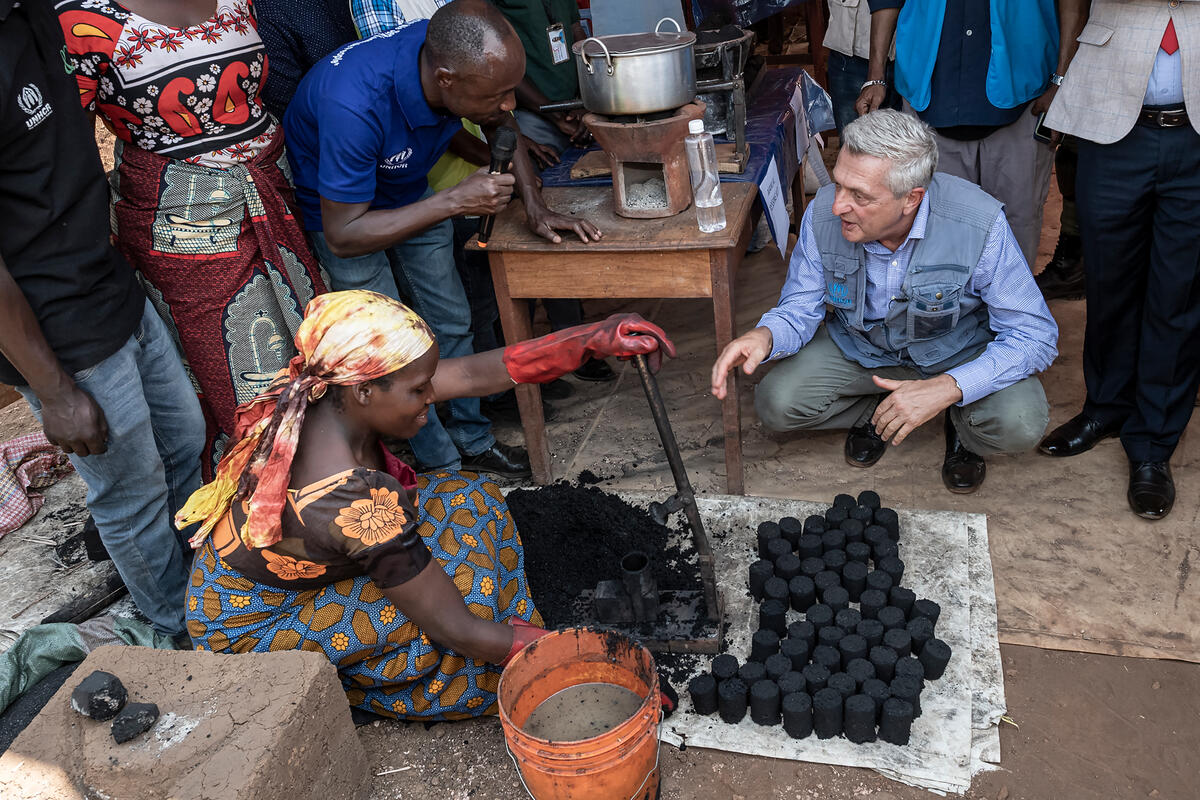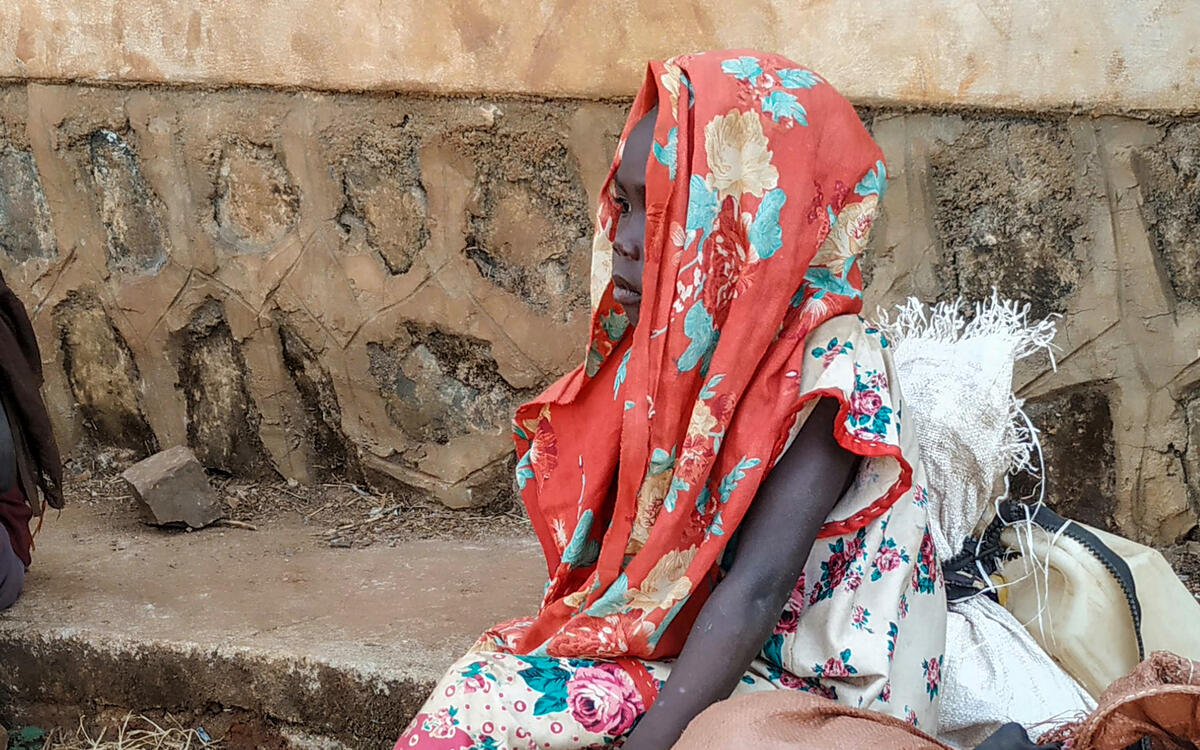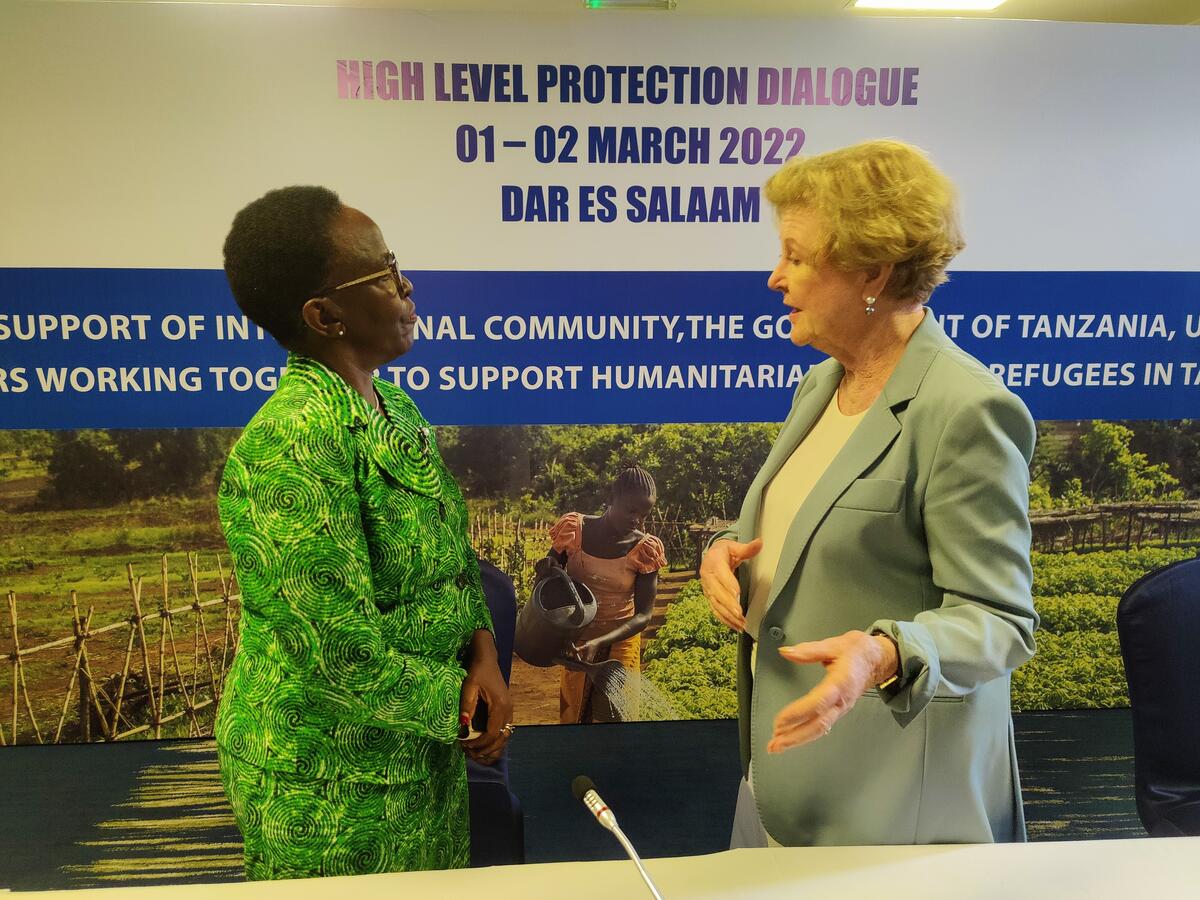Thousands of Burundian refugees in Tanzania register to return home
Thousands of Burundian refugees in Tanzania register to return home

Two repatriated Burundian children at the Songore transit centre.
BUJUMBURA, Burundi, March 14 (UNHCR) - More than 25,000 Burundian refugees living in camps in western Tanzania have registered for voluntary repatriation under a programme initiated by the United Nations High Commissioner for Refugees in early February.
With thousands of refugees returning home spontaneously, frequently walking long distances through insecure areas and suffering occasional harassment, the refugee agency agreed to facilitate the return as part of a tripartite agreement with the governments of Burundi and Tanzania signed in mid-January.
Under the accord, UNHCR will transport the returnees to transit centres being established inside Burundi and provide them with a three-month food supply and basic domestic products. Most of the returnees are going to the communes of Makamba in southern Burundi and to Ruyigi in the eastern part of the country. The returns are expected to begin before Easter.
"We do not think that conditions in Burundi are good enough to return everybody regardless of whether they want to go or not," Kris Janowski, a UNHCR spokesman, said at a news briefing in Geneva on Tuesday.
"But these refugees really want to return and some have already done so through their own means, defying numerous dangers on the way, including combats and harassment," he added.
"We decided to help those going back to make their return a little safer."
Tanzania currently hosts some 350,000 Burundian refugees, most of whom fled the tiny central African country following the October 1993 assassination of Melchior Ndadaye, a Hutu and the country's first democratically elected president. The killing led to wide inter-communal violence.
But as a relative peace has returned to the landlocked nation, refugees have been returning spontaneously, especially since the installation of the Transitional Government in Bujumbura in November 2001. Last year some 25,000 Burundians made the trip home on their own.
In order to inform those that remain in seven camps in western Tanzania about the situation in Burundi, a delegation of six refugees travelled to the country on an inspection visit last week. They attended a session of the Burundian National Assembly and met with top officials, including Stefano Severe, the UNHCR representative in Burundi.
"Many things have changed for the better since my departure from Burundi, but many of the houses destroyed by the war have not yet been rebuilt and those displaced have yet to return home," said Laurent Harusha, an assistant paramedic in the Kitali camp in Tanzania and a member of the delegation.
"The reconstruction of the houses and the return of those displaced would encourage many of the refugees to return," Harusha added. "The presence of soldiers and young police officers along the roads made me realise that security has yet to be fully restored."
The delegation members are expected to work with UNHCR in Burundi in drawing up a detailed plan for the organised repatriation of the refugees once security conditions permit.
During their visit, the delegation ran into groups of Burundians returning home on their own from Tanzania. At the Makamba frontier post, for example, they spoke with a group of 60 returnees. The delegation members were also able to spend a weekend in their hometowns, where they met the local population and provincial officials.
"In my village," delegation member Ruhaza Mathilde said, "new schools and health clinics have been built by UNHCR, and everyone now has access to drinking water, even a bank has been built in my province's main town. Schools to teach adults to read and write have been built by Action AID."
"As soon as I go back to the camp, I am going to explain that the process of reconciliation needs time," said Mathilde, a social worker at the Mtendeli camp. "But the people in the camps are tired by negotiations that never end."









